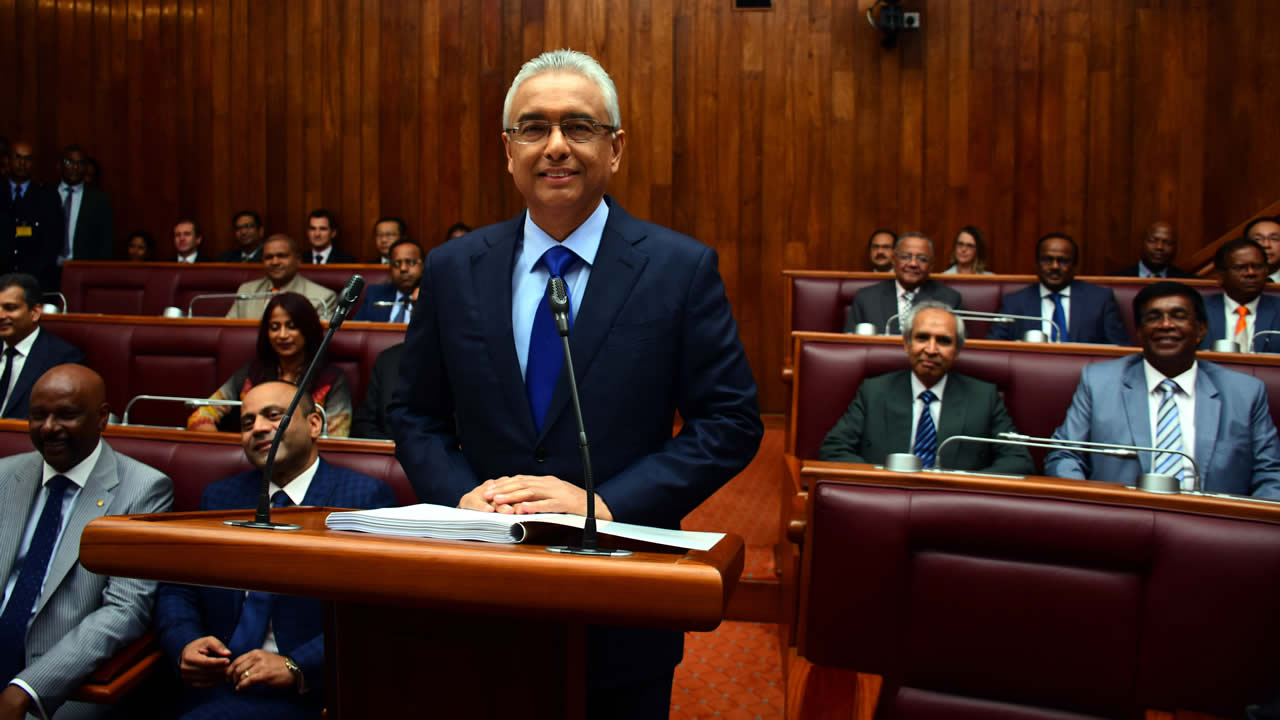
The long-awaited Budget has revealed its secrets on Monday. The Prime Minister and Minister of Finance announced a series of social measures benefiting the entire population, but more importantly, the less fortunate of our society. But these measures have definitely a cost.
The last Budget of the current Government mandate is now behind us. The next challenge is its timely and successful implementation. Whenever he has been the Finance Minister, Pravind Jugnauth has always been very generous on social measures and this time again, he has not deviated from his established tradition. With new social projects in the pipeline such as health centres, sports complexes, social benefits, lower prices for cooking gas and fuel or free broadband internet for poor families, the Budget is indeed largely pro-social and these measures will obviously relieve the working class population.
But social measures have an economic price, as they do not come free. They cause public spending to increase. However, economist Zohra Gunglee says that she finds it necessary to allocate generous funds to social objectives, even if this leads to a Budget deficit. “You have to relieve people at the bottom of the ladder. You cannot always ask them to tighten their belts. The country has made remarkable progress and common people who worked hard must be able to enjoy the economic benefits,” she says. But how do we finance the deficit? “It's up to the Government to find the solution, but I think the Finance Minister has been able to strike the right balance.”
The main social measures and their cost
- A sum of Rs 600 million allocated for free tertiary education
- A sum of 650 million earmarked for the construction of drains in flood prone areas such as Fond du Sac, Cottage, Vallée Pitot, Tranquebar, Baie du Tombeau, among others
- A budget of Rs 1.5 billion for the replacement of defective water pipes
- A sum of Rs 300 million to grant free water tanks and water pumps to about 37,500 families earning less than Rs 50,000 a month
- Subsidies on rice, flour and cooking gas to the tune of Rs 1.7 billion
- Rs 200 million to provide free medical insurance to public sector employees
- Interim payment of Rs 1,000 monthly to all public sector workers pending the publication of the next Pay Research Bureau report
Measures that reduce State revenue
Among the measures that will heavily impact on State revenues are the lower fuel prices and domestic gas. The interim payment of Rs 1,000 per month to civil servants, as from January 2020, will also cost taxpayers. In addition, there have been new regulations in the ‘Property Development Scheme’ promulgated before the Budget on May 4th and which offer tax incentives to real estate developers who carry out projects aimed at retired people, especially foreigners. Thus, these developers will be exempted from Income Tax payment on profit for a period of five years. They will also benefit from customs duty exemption on imported equipment and furniture. A project under this scheme will not need a ‘morcellement permit’, and the developer will not have to contribute the sum of Rs 200,000 per residential unit sold to a social fund, unlike other developers under the PDS. In addition, a developer will have the choice between selling and leasing a residential unit to a foreign national.
Budget misses
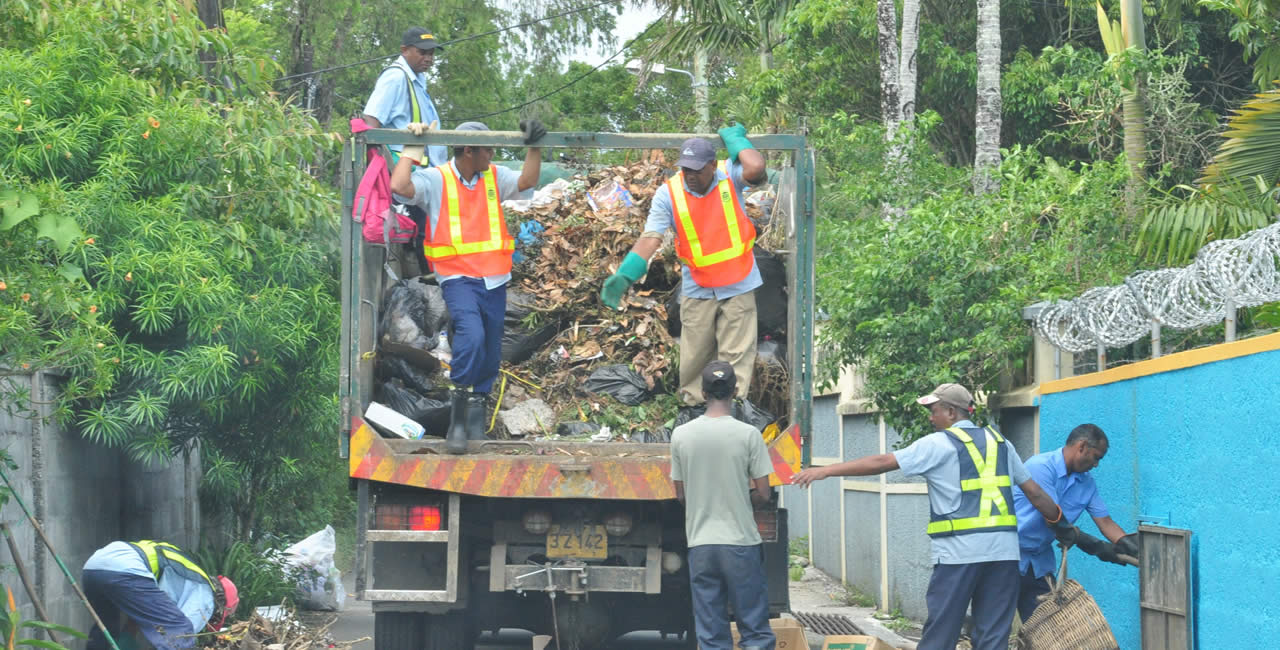
Some measures could have been better worked out and presented for a deeper impact. For example, the Government will pay Rs 300 per ton of garbage collected at landfills for recycling. However, it is not economically viable to rent a truck to collect waste from transfer stations after local authorities have spent a fortune to send the waste there. The ideal situation would have been to promote household waste segregation and collection at source. Secondly, the measure to offer free high-speed broadband internet to 11,000 poor families is highly commendable, but the Minister should have realised that many of them do not have a phone line or a computer or laptop at home. So, how will they benefit from this excellent social measure? We also do not understand the logic of a new eye hospital at Réduit, when we already have the nearby Moka eye hospital, unless the Government has plans to put the latter to other uses, such as converting it into a regional general hospital. The objective should rather be the decentralisation of eye care services to other regions.
By announcing that the National Innovation and Research Fund will be financed by special draws of the lotto, this last Budget will indirectly encourage gambling. Ironically, the first Budget of this very government declared war on gambling!
Small planters and real estate
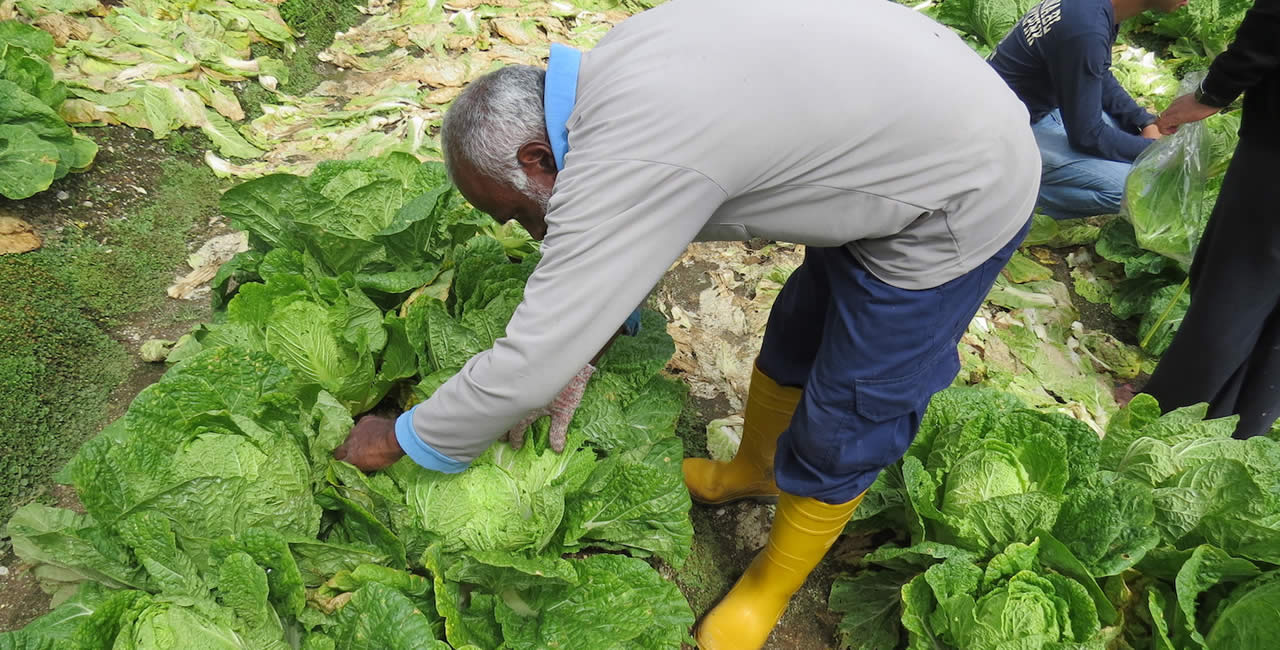
The government wants to encourage small planters to put their abandoned lands back to sugar cane or vegetable plantations. However, many farmers, owning land in strategic locations and suitable for real estate projects, and discouraged by the decline of the agricultural sector, prefer to sell their land to businessmen. Yet, they could have had the chance of becoming property developers themselves, but how would they be able to compete with Smart Cities and other projects under the PDS if they do not enjoy the same facilities, such as tax and customs duty exemption, exemption from Land Conversion Tax or the morcellement permit?
Trade fee exemption extended
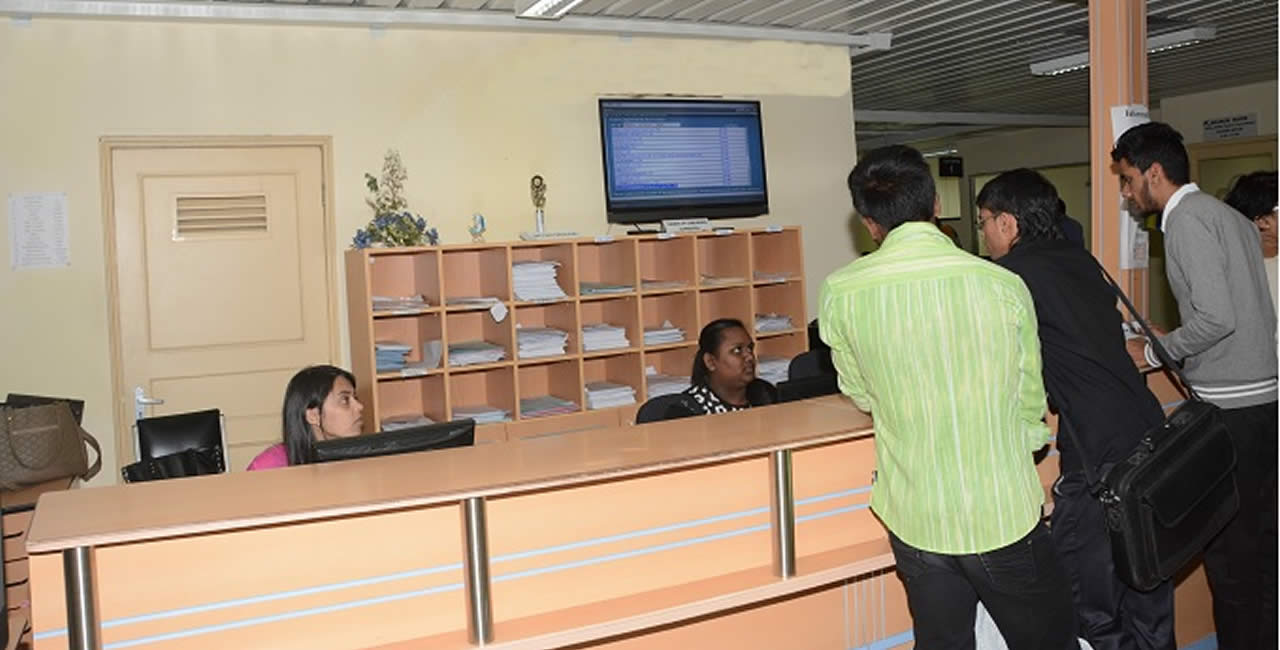
Last week, we wondered whether the suspension of the municipal trade fee, in effect since 2016, will be extended. Well, good news for small businesses because the Prime Minister and Minister of Finance has again suspended the payment of trade fee for another three years. This decision applies to all trade licences up to Rs 5,000. Furthermore, to simplify procedures at local government level, it is the Registrar of Companies Department which will be asked to collect Trade Fee payments for Trade Licences of over Rs 5,000. Let’s hope this does not become an additional burden on this Department resulting in added bureaucracy!
Optimising our infrastructure

The 2019/2020 Budget aims to improve and expand the social infrastructure landscape of the island with the construction of new multipurpose halls and sports complexes in selected villages and town areas. Indeed, it is impossible to build such infrastructure throughout the island in the short and medium term. But there are alternatives to cope with growing demand. For example, we have hundreds of schools, primary and secondary, which are equipped with vast playgrounds football grounds, halls, gyms and other facilities but which remain unutilized after school hours and during weekends, yet in many towns and villages, children can be seen playing on the road due to lack of facilities. Why can’t the Government open school infrastructure to local communities during evenings and weekends so that the public can benefit? Improving living standards of the population does not necessarily mean higher investment in buildings, but rather a more judicious use of existing facilities.
Perpetuating discrimination
While the international trend in good governance is to move towards more equality and fairness, in Mauritius, successive governments continue to perpetuate discriminating policies that seriously distort level playing fields and create an anticompetitive atmosphere. For example, the Government once again discriminates among SMEs by granting Road Tax concession to selected trades while other SMEs have to pay full tariff. So, on what basis does the Government decide who should pay a reduced rate? All SMEs, whether they are engaged in agricultural activities, manufacturing, metal works, or the distribution trade have to make use of utility vehicles and it is unfair that not all of them are granted the same incentives.
Similarly, too many schemes distort the market. For example, creating a new scheme for retired homes within the Property Development Scheme, with a pack of exclusive fiscal incentives not applicable to the rest of developers is not conducive to a healthy competitive environment.
When digital services increase waiting time
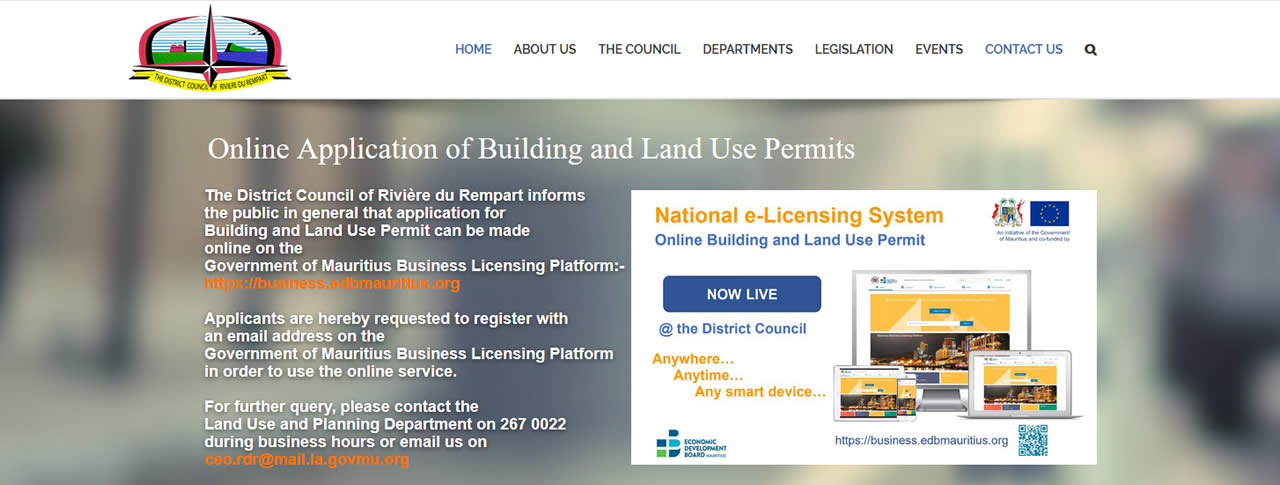
The Budget has announced the introduction of more online services to improve business and citizen facilitation services, cut down waiting time and eliminate long queues at public services counter. Such a measure will greatly enhance the investment climate and improve our rankings in global surveys. However, digital services may not always yield the expected results if the procedures and mechanisms are not re-engineered and streamlined. The E-Licensing system, which has cost nearly 40,000 Euros, is a glaring example. In the past, an application for Work Permit by a foreign investor took as long as three to six months to be processed. This is why the Occupation Permit was introduced in order to process an application in three working days. Today, with the introduction of an online system, investors are seeing their applications taking as long as 40 days to be processed! Ironically, the work permit system at the Ministry of Labour has so much improved in the meantime that a permit is being issued in a maximum of two weeks! Similarly, the online BLP application is taking too long. The E-Licensing system is an excellent tool to combat bureaucracy, but before going online, any process should be thoroughly reviewed to eliminate unnecessary and illogical steps, otherwise the purpose of online services will be defeated.
When the EDB avoids analysing
Investors and entrepreneurs eagerly awaiting the Budget analysis of the Economic Development Board on Budget Day were disappointed. It is customary for the organisation, since its creation, to issue, on the very evening of the presentation of the annual budget, a special informative newsletter dissecting the economic impact of the measures announced, which greatly helps investors in their decision. However, this time, the EDB has departed from its own tradition by simply doing a copy-paste exercise where it merely highlighted the measures as presented in Parliament, without any further analysis. Is it because the investment promotion agency did not find anything to say about the measures? Note, however, that a panel will discuss the Budget this Friday.
 J'aime
J'aime














